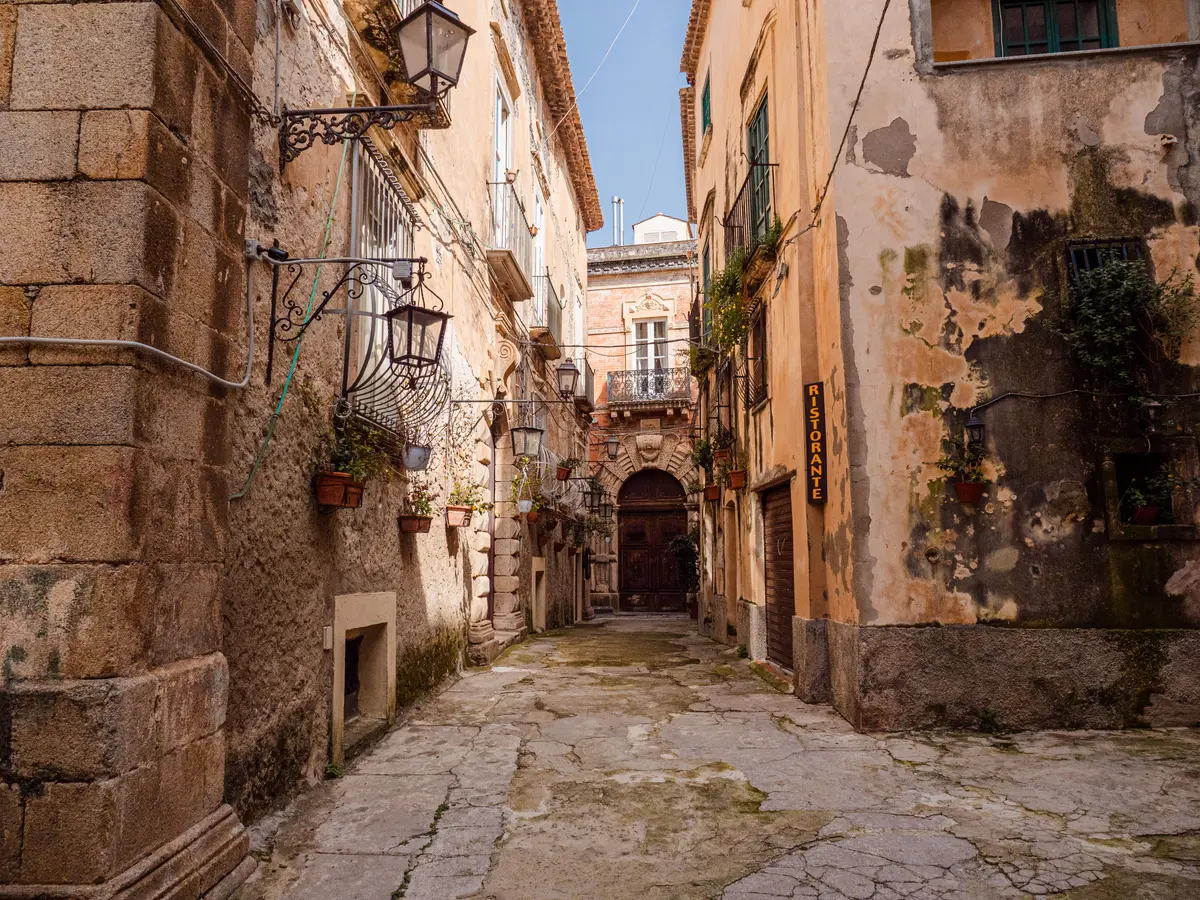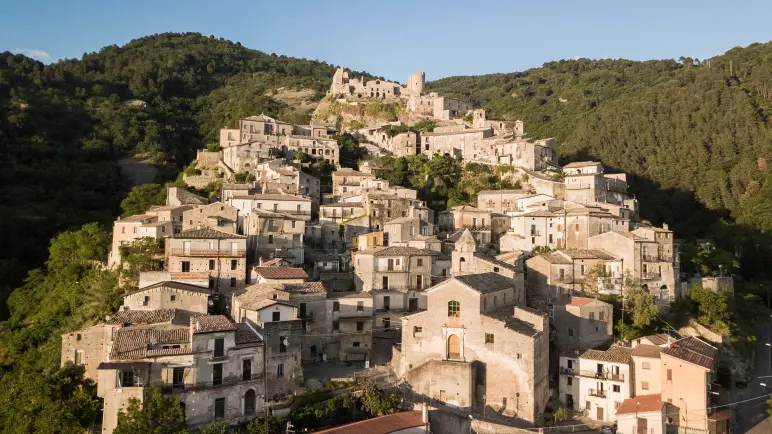Trip to Vibo Valentia, from ancient Hipponion to today
Three names for an ancient city history

Art and Culture
Regione Calabria
In the beginning was Hipponion, then Monteleone, lastly Vibo Valentia: three names for a provincial capital suspended between history and contemporaneity.
Follow us on an enthralling urban trek through the streets of Vibo Valentia, which from the scenic top of the castle and the ancient, more perched town, takes us to the marina district, the ancient Porto Santa Venere (today Vibo Marina), through history, archaeology and cultural initiatives.
What to see in Vibo Valentia
Provincial capital and capital of the so-called Serre Vibonesi, also known as the Regional Natural Park of the Serre, the city of Vibo Valentia is located halfway up a hill, close to the enchanting Costa degli Dei, offering visitors the right mix of mountains and sea, as well as the richness of a historical centre waiting to be discovered.
On the strength of its long history, made up of cultural and archaeological stratifications spanning some 8,000 years, as well as a strategic position offering it a natural outlet to the Tyrrhenian Sea and a mountain outpost, today's Vibo Valentia was central to both Greece and Rome.
The Neolithic phase of the city is revealed in the findings of the Western Necropolis of Hipponion, the name of the Greek colony founded by Locri Epizefiri in the mid 7th century BC. Two centuries later, construction of a new city wall began, destined to capitulate in 192 B.C. when, with the Second Punic War, it became a colony under Latin law with the name Valentia, and then officially Vibo Valentia (as Strabo and Pliny the Elder called it).
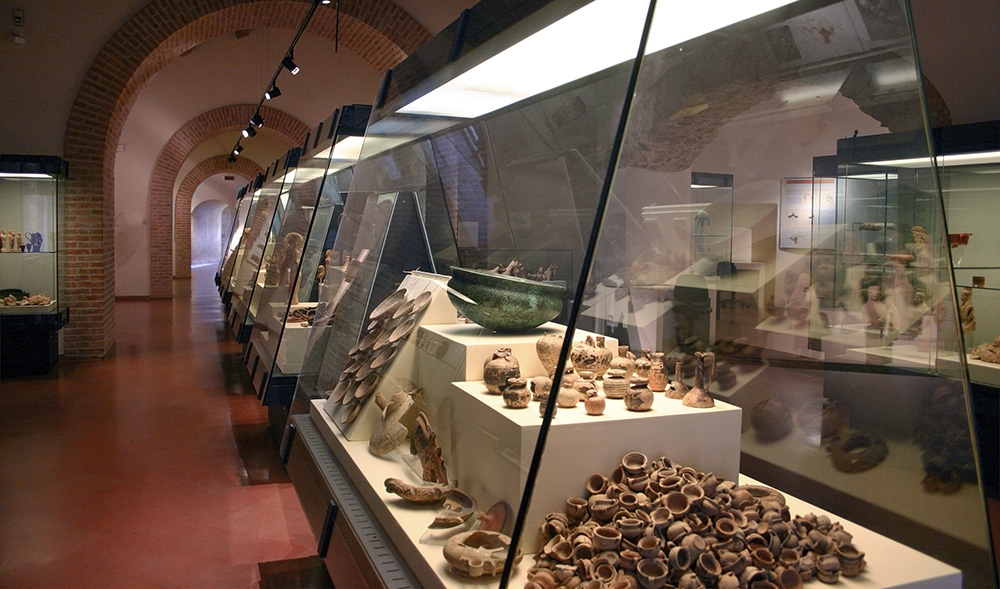
A loyal ally of Rome, Valentia flourished thanks to its strategic harbour, the same one in the Marina of Vibo from which mini-cruises to the Aeolian Islands depart today, which can be glimpsed from here during the evocative fiery sunsets.
The imposing Norman-Swabian Castle, now home to the "Vito Capialbi" National Archaeological Museum, is the starting point for a historical-archaeological itinerary that reviews the salient moments of the events of Vibonese antiquity (and not only) through precious artefacts, such as the Orphic Laminetta of Hipponion, the parade weapons of the Hipponian aristocracy and numerous statuettes of Persephone and Demeter, to name but a few.
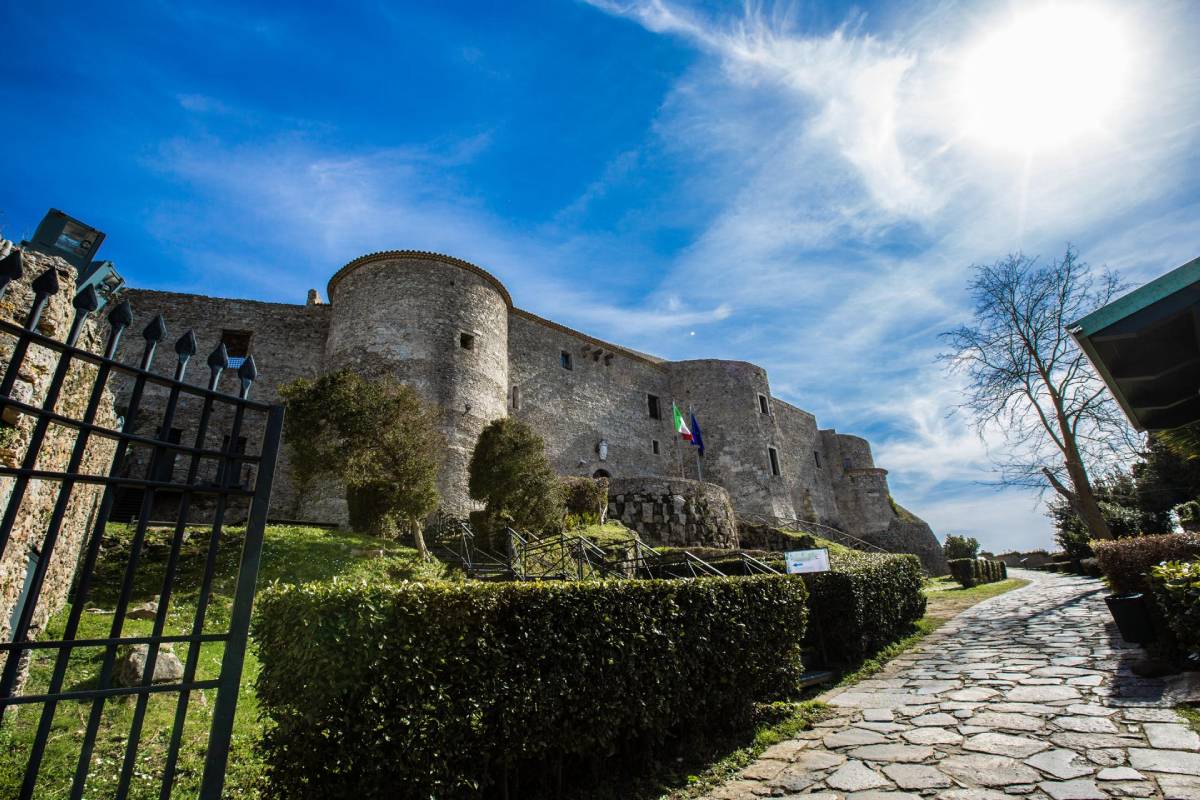
Having become a fief of the Caracciolo family, under Fascism and on the initiative of the deputy Luigi Razza, the city was renamed Monteleone di Calabria, before returning to Vibo Valentia and becoming the capital in the 1990s.
Descending the hill towards the historical centre, past the scenic Rimembranze Park, a delightful maze of alleyways leads to the most important aristocratic buildings, such as Palazzo Capialbi, and religious ones: the Cathedral of Santa Maria Maggiore and San Leoluca and the Renaissance Church of San Michele Arcangelo.
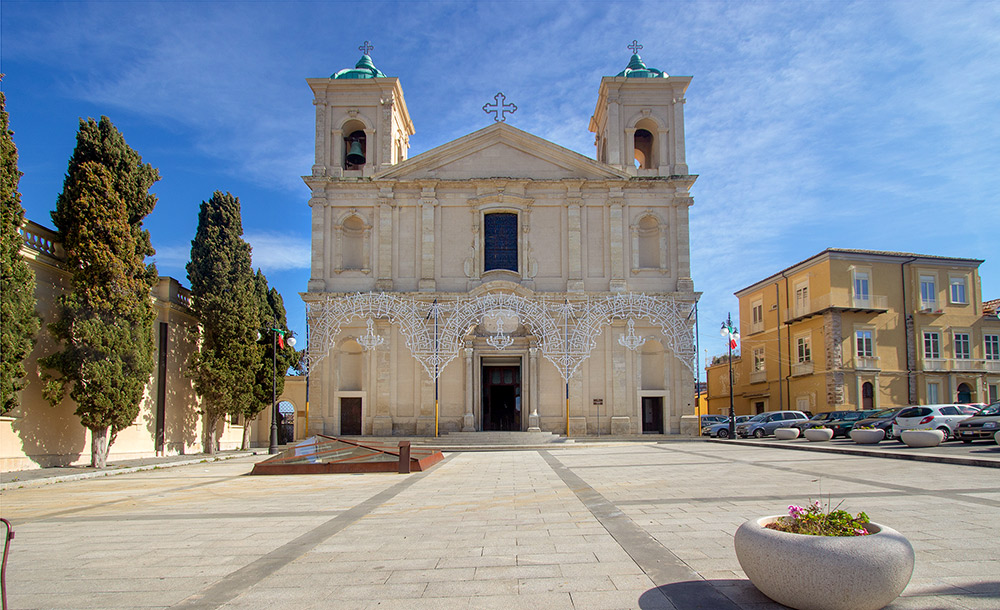
What to do in Vibo Valentia
Vibo Valentia is home to an important annual literary festival, the "Festival Leggere e Scrivere", linked to the Sistema Bibliotecario Vibonese.
The Vibo Valentia festival dedicated to books takes place every year, usually in October, and includes daily events for young and old: meetings with writers, book presentations, readings, book signings and workshops for schools and children, as well as convivial moments, debates and shows.
On the gastronomic front, the city and the entire province offer a series of dishes and foods that rank among the Calabrian agrifood excellences. From the Vibonese territory come, for example, Pecorino del Monte Poro PDO, 'Nduja di Spilinga and the renowned Red Onion of Tropea PGI.
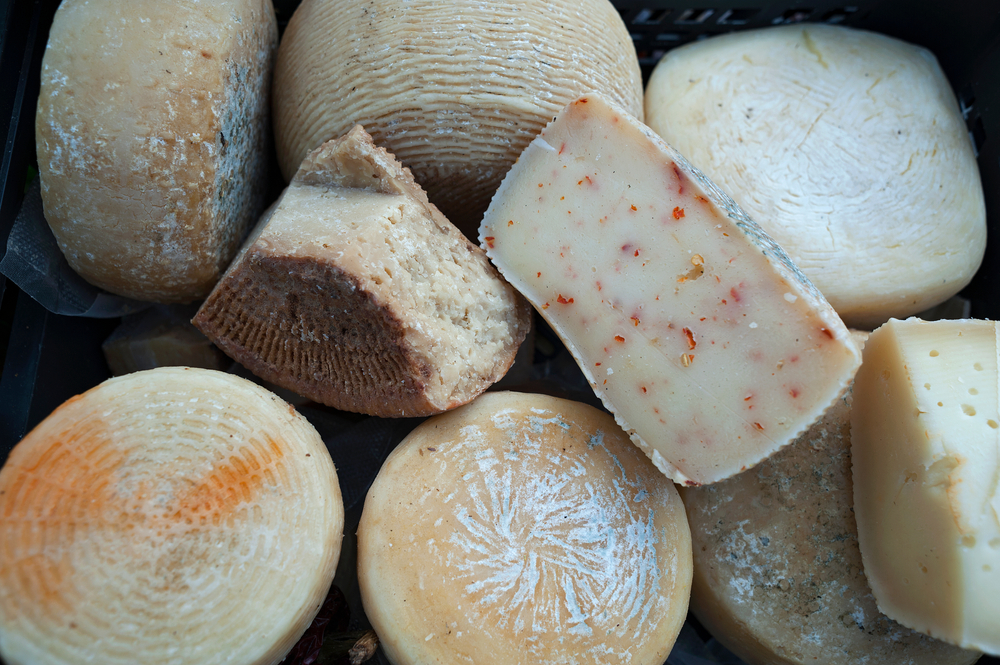
The city offers several gourmet restaurants (Michelin) serving recipes based on fresh local fish. Traditional desserts include jaùna, fried Christmas sweets made from chickpea flour and filled with chocolate and dried fruit.
Lovers of excursions and outdoor sports activities can indulge themselves from the sea to the mountains, i.e. from boat trips along the spectacular Costa degli Dei to mountain trekking in the Serre and on Monte Poro.
Among the folkloristic and religious events not to be missed are those linked to Holy Week, such as the typical Affruntàta, on Easter Sunday.
https://calabriastraordinaria.it/en/news/trip-to-vibo-valentia-from-ancient-hipponion-to-today
